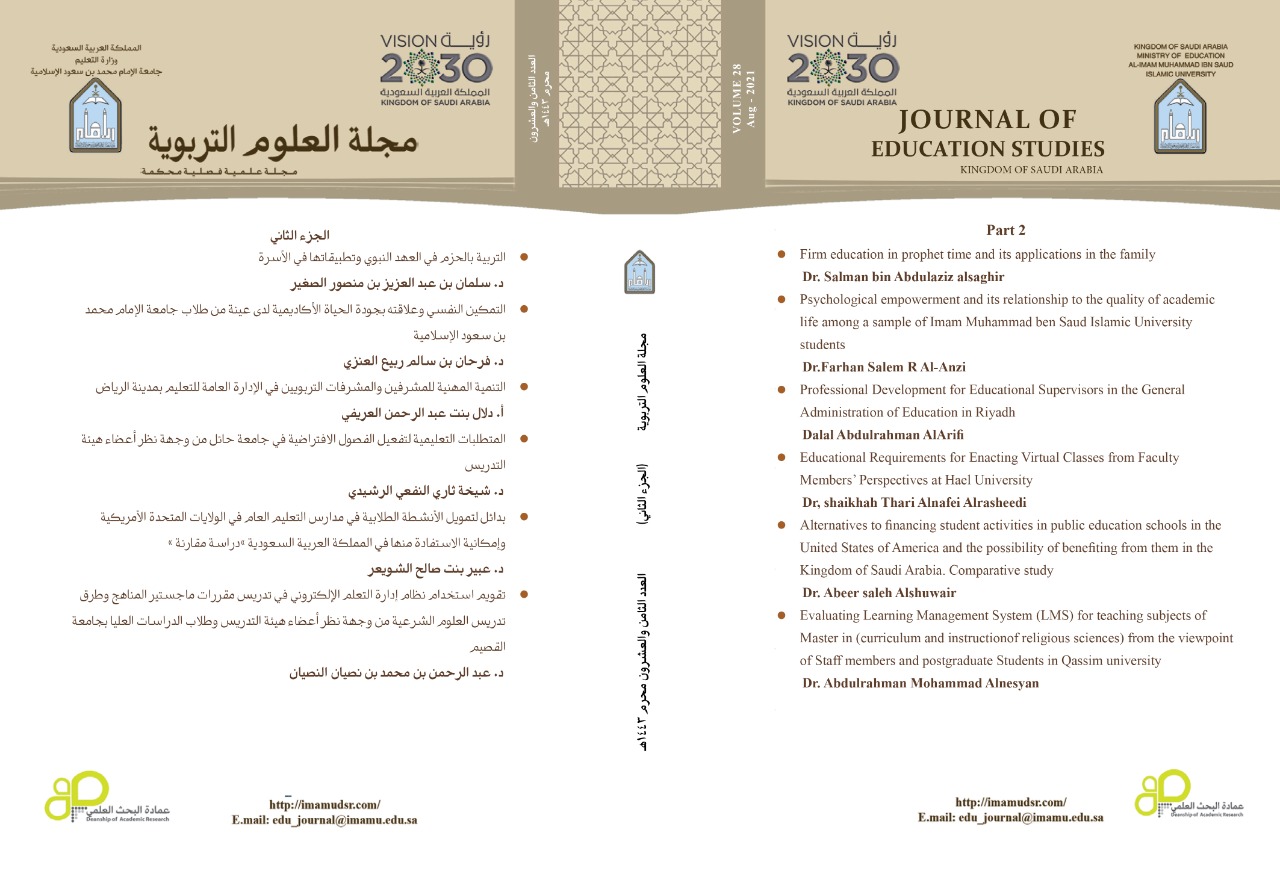Psychological empowerment and its relationship to the quality of academic life among a sample of Imam Muhammad ben Saud Islamic University students
Keywords:
Psychological Empowerment - Quality of Academic Life - University Students - Higher EducationAbstract
The current study aimed to identify the level of both psychological empowerment and the quality of academic life; to reveal the relationship between them and to identify the differences in measuring the level of both psychological empowerment and the quality of academic life according to the variables (gender / academic level / academic specialization) among students of Imam Muhammad ibn Saud Islamic University. The study sample of (258) male and female students from Al-Imam University, and to achieve the goal of the study. The Psychological Empowerment Scale was constructed by the researcher. The Quality of Academic Life Scale was used by Mustafa Bassiouni (2017). The results of the research showed that the level of psychological empowerment reached (76.68) degreesWith a standard deviation (2.05), with relative weight (76.68%), and the level of quality of academic life (101.10), a standard deviation score (3.09), with relative weight (76.59%). The results of the research showed a statistically significant relationship between psychological empowerment and academic quality of life. as it became clear that there were no statistically significant differences between male and female students in psychological empowerment, and there are no statistically significant differences between males and females in the quality of academic life. The results also showed that there are no statistically significant differences between students of the first, third, fifth, and seventh levels in psychological empowerment and the quality of academic life. The absence of significant differences Statistics between scientific and theoretical specialization in psychological empowerment, except for the total degree of psychological empowerment, as there are differences in the whole degree of psychological empowerment in favor of scientific specialization, and there are no statistically significant differences between scientific and theoretical specialization in the quality of academic life.




